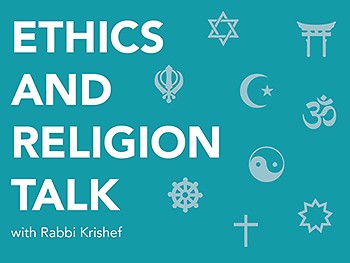Dr. Sahibzada, the Director of Islamic Center and Imam of the Mosque of Grand Rapids, responds:
“True faith must be firm and intact of the person. The result of unshakable faith is that a believer will finally end up in the heaven. If life is not good enough to deserve heaven as final abode in the Hereafter, then person must repent and seek forgiveness before the beginning of dying moments. Almighty God is Merciful and Forgiving, therefore He has provided window of repentance before death. If a person dies not living good enough life, then God may forgive, or the person must face temporary certain timing of purification under divine justice system. The person will be transferred to heaven for ever after expiry of purification period.
“The benefit of the firm belief is that a believer must not be disappointed from the Mercy of God anytime whatever the situation of believer’s life is.”
The Rev. Rachel J. Bahr, pastor of Plymouth UCC, responds:
“There is a TV show right now that is based on this exact question called The Good Place. Though it is entertaining, I’m not throwing much weight behind the premise. When I teach my Confirmation Class about heaven and hell, I share that I am heavily influenced by the writings of C.S. Lewis. I truly believe that God’s love for us is ours for the taking, if only we can accept it. In this framework, sin is anything that separates us from God. Lewis describes folks who have chosen this separation over and above God’s love as being like a city where folks lock themselves in from the inside. At any point they could choose to undo the lock and leave. A wise Imam once told me that he believed that folks who had done terrible things during their lives would spend time in a soul hospital healing for as long as they needed before being reunited with Allah. I always was drawn to this imagery, because there is still time for growth, there is hope for healing even in the afterlife, and everyone is eventually reunited with God.”
Fred Stella, the Pracharak (Outreach Minister) for the West Michigan Hindu Temple, responds:
“Hinduism teaches that every single soul that has been embodied in a human form will ultimately reach that state of ever existing, ever conscious, ever new bliss. Since the soul is actually a part of God this is the only possibility, since God can never be separate from God.
"But the journey to this state can be a long, circuitous one. When we live lives that aren’t, as you say, ‘good enough’ we reincarnate into a new human form that approximates the consciousness we held in the last lifetime.
“It’s important to remember that whatever happens from lifetime to lifetime the religious or philosophical doctrines that one holds have little or no consequence; assuming the faith you embraced was one of compassion and inspired noble actions and generosity. So, in essence, God ‘doesn’t care’ whether you are Hindu, Jewish, Lutheran, etc. But if you subscribed to, say, a ‘Christian’ form of White Nationalism, well, yes. God cares, so to speak.
“Also, there is a bit of similarity with the notion of Purgatory. That is, between embodied lives the soul is said to exist on subtle planes that match the consciousness of the person at death. Some are pleasant and some are very dark. The soul has the opportunity for spiritual growth there as well.”
Rev. Ray Lanning, a retired minister of the Reformed Presbyterian Church of North America, responds:
“Presbyterianism teaches that you have no need to suppose or speculate. You have not lived a life ‘good enough to attain to heaven.’ ‘All have sinned, and come short of the glory of God’ (Romans 3:23). If you live and die unreconciled to God, separated from Him by your sins, you will continue in that state forever. It is called hell or inferno, sometimes described in terms of ‘fire and brimstone,’ but the reality is far worse than that.
“What can it be to go on forever without God and without hope, in darkness and despair, burdened with guilt, and assailed by vain regrets? All the worst parts of life on earth stay with you; the good gifts of God have been forfeited. Heaven is promised to those who turn from their sins, call upon the name of the Lord, and trust in His promise to save them. ‘This is life eternal, that they might know thee, the only true God, and Jesus Christ, whom thou hast sent’ (John 17:3).”
This column answers questions of Ethics and Religion by submitting them to a multi-faith panel of spiritual leaders in the Grand Rapids area. We’d love to hear about the ordinary ethical questions that come up on the course of your day as well as any questions of religion that you’ve wondered about. Tell us how you resolved an ethical dilemma and see how members of the Ethics and Religion Talk panel would have handled the same situation. Please send your questions to [email protected].
The Rapidian, a program of the 501(c)3 nonprofit Community Media Center, relies on the community’s support to help cover the cost of training reporters and publishing content.
We need your help.
If each of our readers and content creators who values this community platform help support its creation and maintenance, The Rapidian can continue to educate and facilitate a conversation around issues for years to come.
Please support The Rapidian and make a contribution today.
